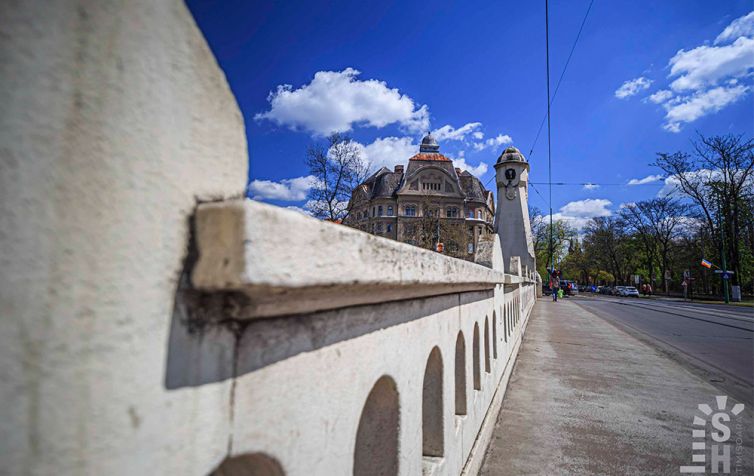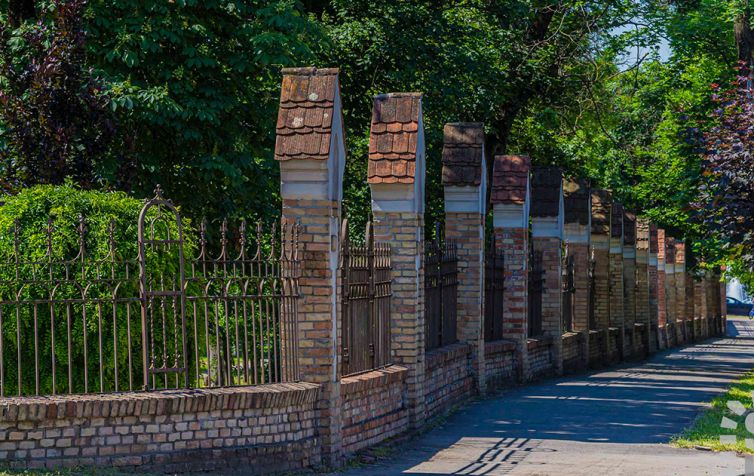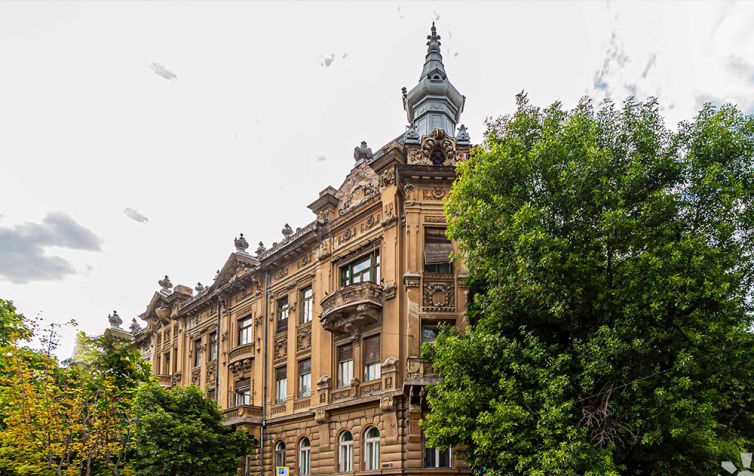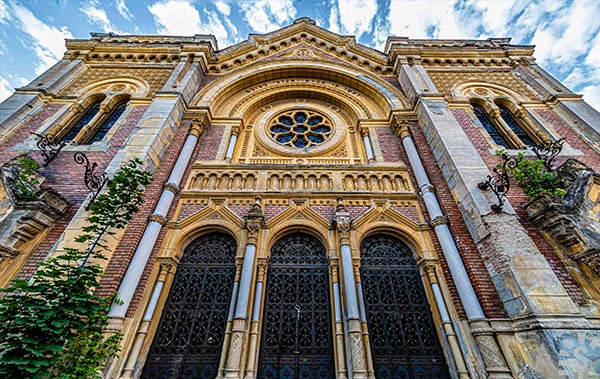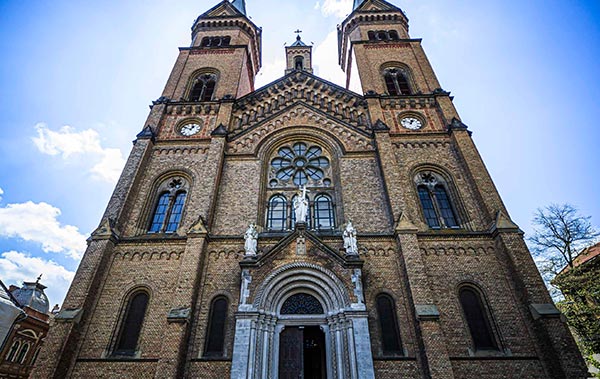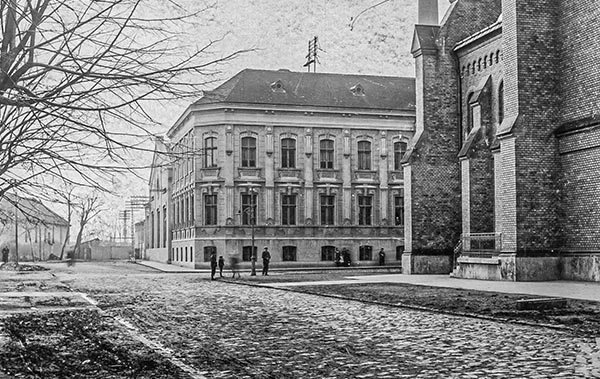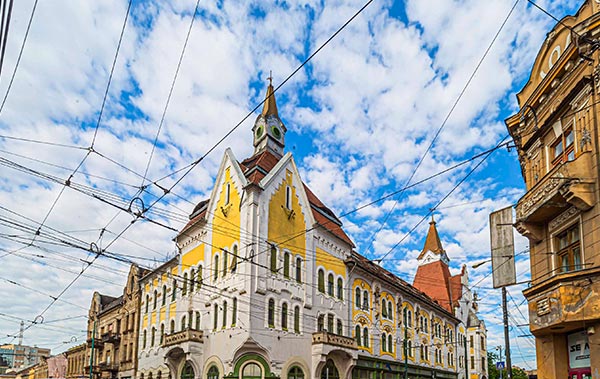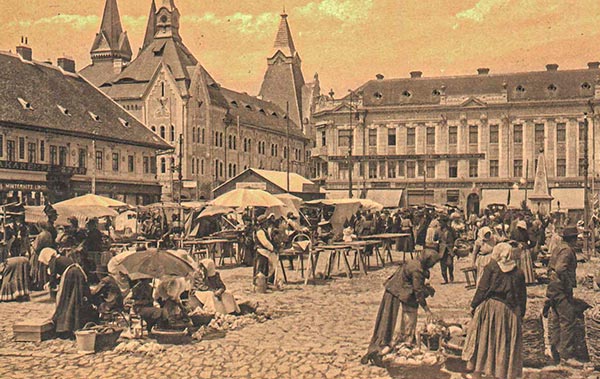The current boulevard 3 August 1919 presents the unitary northern pediment, being furnished with monumental buildings between Academician Corneliu Micloși Square and Splaiul Nistrului. This pediment includes the palaces: Neptune, the palace of the widow Székely, Karl Kunz, Franz Anheuer, Ignatz Haymann and Miksa (Max) Steiner.
Ștefania Palace, the former "Town Hall", named after 1918 after the wife of Rudolf Totis, the owner of the building in the interwar period. It was built by the senior entrepreneur Josef Kremmer according to the plans of the architect László Székely in the years 1908-1909, in the style of the 1900s (Secession).
"Traian Square is the central square of the Fabric district, its beginnings being related to the first half a sec. in the 18th century. The original appearance of the Square was very different from today, given that many of the existing buildings at the time were relatively modest, with a single level and a rather rural look. The current appearance was received only at the turn of the nineteenth and twentieth centuries, when the great palaces were built on all four sides of the square."


